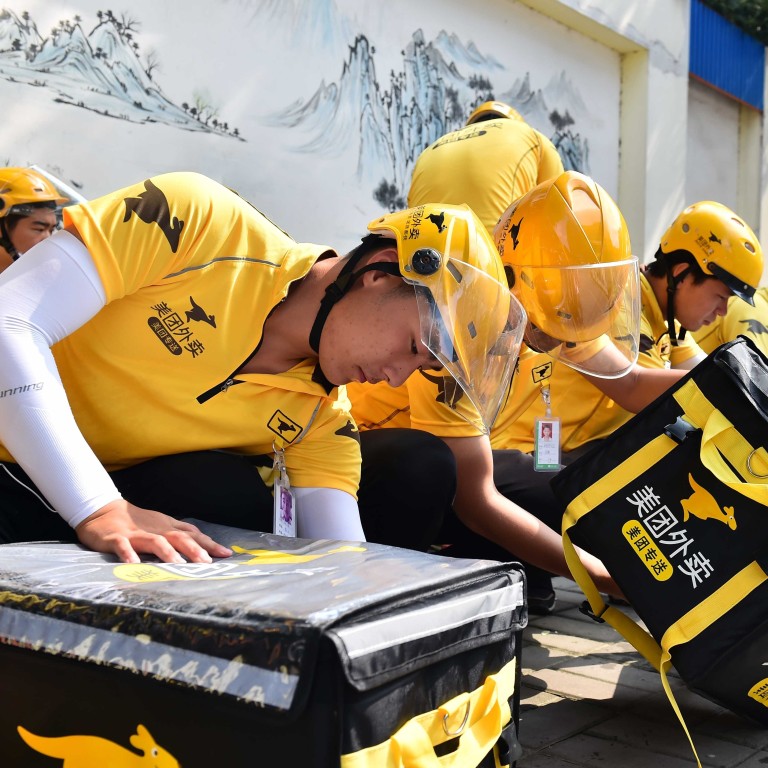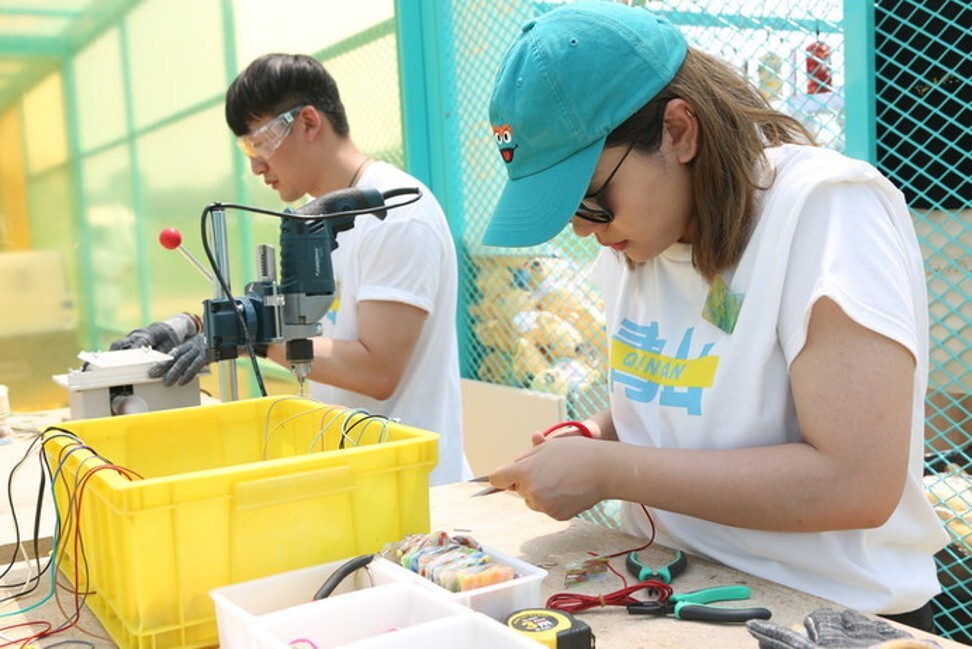
Meituan Dianping steps up recycling drive amid deluge of plastic waste in China
- The food delivery giant’s move follows Beijing’s plan to cut the production and use of plastic in the country over the next five years
- The amount of waste accumulated by China’s e-commerce and express delivery sectors could reach 41.3 million tonnes by 2025
Meituan Dianping, China’s leading e-commerce platform for services, is ratcheting up efforts to build a green supply chain for packaging, as the world’s second-largest economy combats a growing plastic waste problem.
The Beijing-based company said on Monday that its Blue Mountain Project, an environmental protection initiative launched in 2017, will establish more programmes to recycle packaging waste across the country.
The initiative has established about 350 pilot programmes since it was launched, according to the company’s statement. It said these programmes have successfully recycled 74 per cent of takeaway boxes gathered from office buildings, communities and campuses in various major cities, including Beijing, Shanghai and Shenzhen.

Meituan Dianping’s move to step up its green initiative over the next five years follows Beijing’s plan to cut the production and use of plastic in the country over that same period.
Meituan Dianping’s quarterly earnings beat estimates as China food delivery market recovers
Other major online platforms are also helping China tackle its plastic waste problem. Ele.me, the food delivery platform of Alibaba Group Holding, has launched its own sustainable packaging material initiative for takeaway orders. This includes cutting down on disposable tableware and excessive packaging of takeaway orders, according to Ele.me. Alibaba is the parent company of the South China Morning Post.
Cainiao Network, the logistics unit of Alibaba, is using a smart-packaging algorithm to improve packaging efficiency for about 530 million parcels that its system handles each year, according to the company. That has helped reduce the amount of waste materials from overpackaging by 15 per cent, it said.
JD.com launched its Green Stream Initiative three years ago. Under this programme, JD.com has cut down on packaging waste by using slimmer tape, lighter plastic bags and recycled boxes, according to the company.

